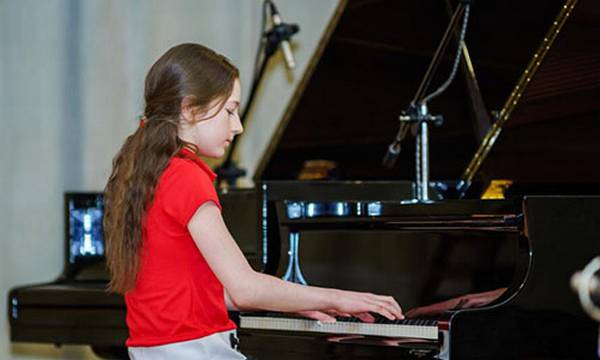晓得如何说晚安和晨安对每个英语学习者都很重要。在睡觉前和早上醒来后,谈论睡觉是很常见的。以下是最常用的短语。
Going to Bed
上床睡觉
在英语中,睡觉前和别人说话时有林林总总的表达方法。许多人都期望对方能睡个平稳觉,做个美梦:
Good night.
晚安。
Sleep well.
祝你睡得香。
Have a good night’s sleep.
祝你睡得好。
Make sure you get a good night’s sleep.
祝你安靖入眠。
I hope you sleep well.
我期望你睡得甜美。
See you in the morning.
明日早上见。
Sweet dreams.
祝你好梦。
Sleep tight!
睡得平稳!
Night, night.
晚安。
其他的表达方法愈加坚持,包括父母可以用来告诉不安的孩子该睡觉了:
Lights out!
熄灯睡觉!
Time for bed!
睡觉时刻到!
示例对话
Kevin: Good night.
凯文:晚安。
Alice: See you in the morning.
艾丽斯:早上见。
Kevin: I hope you sleep well.
凯文:我期望你睡得好。
Alice: Thank you. Make sure you get a good night’s sleep as well.
爱丽丝:谢谢。保证你也能睡个好觉。
Kevin: Get some good sleep. We have a big day tomorrow.
凯文:好好睡一觉。咱们明日有个大日子。
Alice: Okay, you too.
艾丽斯:好吧,你也是。
Kevin: Lights out!
凯文:熄灯!
Alice: Okay, I’m going to sleep. Night, night.
艾丽斯:好吧,我要睡觉了。晚安,晚安。
Kevin: I’m heading up to bed now.
凯文:我如今要去睡觉了。
Alice: Sleep tight!
爱丽丝:睡得平稳!
Waking Up
醒来
早上醒来的那一刻,也是我们闲谈的时分。他们常常问对方睡得怎么样,感触怎么样。
Good morning.
晨安
I 
hope you had a good night’s sleep.
我期望你睡个好觉。
I hope you got some good rest.
期望你能好好歇息。
Did you sleep well?
你睡得好吗?
Did you get a good night’s sleep?
你睡得好吗?
I slept well, how about you?
我睡得极好,你呢?
How did you sleep?
你睡得怎么样?
Did you have any dreams?
你做梦了吗?
Rise and shine.
起床。
示例对话
Kevin: Good morning.
凯文:早上好。
Alice: Good morning. Did you sleep well?
艾丽斯:早上好。你睡得好吗?
Kevin: I hope you had a good night’s sleep.
凯文:我期望你睡了个好觉。
Alice: Yes, thank 
you, I did. And you?
爱丽丝:是的,谢谢你,是的。你呢?
Kevin: Good morning, honey. I hope you got some good rest.
凯文:早上好,亲爱的。期望你能好好歇息。
Alice: I did. How did you sleep?
爱丽丝:是的。你睡得怎么样?
Kevin: Good morning. Did you have any dreams?
凯文:早上好。你有愿望吗?
Alice: I did. I had a strange dream and you were in it!
爱丽丝:是的。我做了一个新鲜的梦,而你却在梦里!
Kevin: Good morning.
凯文:早上好。
Alice: I’m still sleepy. I think I’ll hit the snooze for ten minutes.
艾丽斯:我仍是很困。我想我要打非常钟的打盹。
Kevin: We don’t want to miss our appointment, though.
凯文:不过,咱们不想错践约会。
Alice: Oh, I 
forgot about that.
爱丽丝:哦,我忘了。
Kevin: Rise and shine.
凯文:起来吧。
其他常见的睡觉和醒来的表达
英语中充溢了与睡觉和起床有关的成语。学习这些表达方法对英语学习者特别有协助:
Night owl: a person who likes to stay up late
夜猫子:喜爱熬夜的人
Early bird: a person who usually wakes up early
早上的人:一般早上的人
Tossing and turning: being restless and unable to sleep, usually after lying in bed for a long period of time
曲折反侧:不安,不能入眠,一般在长时刻卧床后
To tuck someone in: to put someone to bed, usually by pulling the covers 
up over them so that they are warm and snug
给或人掖被子:把或人放在床上,一般是把被子往上拉,使其温暖舒畅
To sleep like a baby: to sleep restfully, without any disturbances
睡得像婴孩,睡得平稳,不受惊扰
To hit the hay: to go to bed
上床睡觉
To catch some Zs: to go to bed
去睡觉
To wake up on the wrong side of the bed: to be in a bad mood
在床的不和醒来:心境不好
示例对话
Kevin: I don’t usually go to bed until 2 a.m.
凯文:我一般清晨两点才睡觉。
Alice: You really are a night owl.
爱丽丝:你真是个夜猫子。
Kevin: Did you sleep well?
凯文:你睡得好吗?
Alice: No, I was tossing and turning all night.
爱丽丝:不,我整夜曲折反侧。
Kevin: You’re in a grumpy mood today.
你今日脾气不好。
Alice: I guess I woke up on the wrong side of the bed.
艾丽斯:我想我醒来时睡错了床。
Kevin: I feel great this morning.
凯文:我今日早上感触极好。
Alice: Me too. I slept like a baby.
爱丽丝:我也是。我睡得像个婴儿。
Kevin: I feel exhausted after that long hike.
凯文:远程旅行后我觉得很累。
Alice: Yeah, you look pretty tired. Time to hit the hay.
艾丽斯:是啊,你看起来很累。是时分睡觉了。
作者:Summer.
喜爱请多多重视学府翻译!



